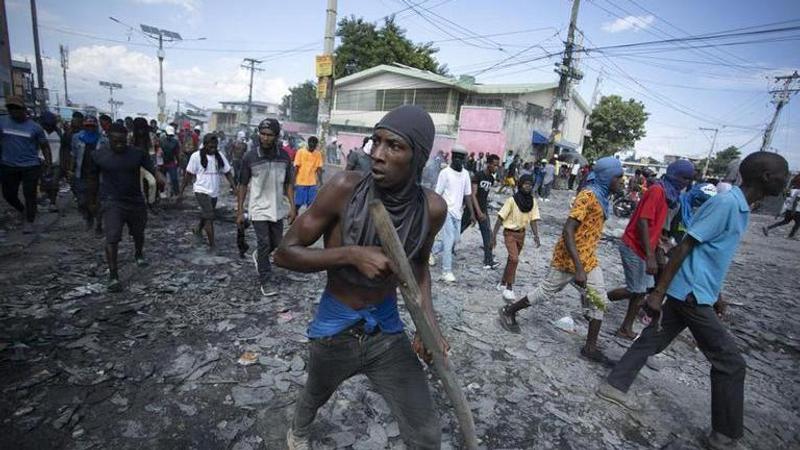Published 06:18 IST, October 11th 2022
Haitians reject call for international armed forces
Haiti has called for international armed forces as gangs and protesters paralyze the country amid fuel and water shortages.

Haiti has called for international armed forces as gangs and protesters paralyze the country amid fuel and water shortages.
As the UN ponders over deploying a rapid armed force to help end Haiti's crisis, roadblocks continue to impede traffic in the capital while protesters shout against the "foreign occupation" and demand the resignation of the Prime Minister.
On Friday, Haiti's government published an official document signed by Prime Minister Ariel Henry and 18 top-ranking officials requesting from international partners "the immediate deployment of a specialized armed force, in sufficient quantity," to stop the "criminal actions" of armed gangs across the country.
The request comes nearly a month after one of Haiti's most powerful gangs surrounded a key fuel terminal in the capital of Port-au-Prince, preventing the distribution of some 10 million gallons of diesel and gasoline and more than 800,000 gallons of kerosene stored on site.
Many Haitians have rejected the idea of another international intervention, noting that UN peacekeepers were accused of sexual assault and sparked a cholera epidemic over a decade ago that killed nearly 10,000 people.
"It is unconstitutional and an act against the demands of the Haitian people," said Port-au-Prince resident Josue Merilein.
Haiti's National Police has struggled to control gangs with its limited resources and chronic understaffing, with only some 12,800 active officers for a country of more than 11 million people.
The gangs have only grown more powerful since the July 2021 assassination of President Jovenel Moïse.
Protesters have also blocked roads demanding the resignation of Henry since he announced in early September that his administration could no longer afford to subsidize fuel, leading to sharp increases in gasoline, diesel and kerosene prices.
Gas stations are shuttered, hospitals have cut back on critical services and businesses, including banks and grocery stores, have curtailed their hours.
The deepening paralysis has caused supplies of fuel, water and other basic goods to dwindle amid a cholera outbreak that has killed several people and sickened dozens of others, with health officials warning that the situation could worsen amid a lack of potable water and cramped living conditions.
More than 150 suspected cases have been reported, with the UN warning that the outbreak is spreading beyond Port-au-Prince.
Updated 06:18 IST, October 11th 2022




